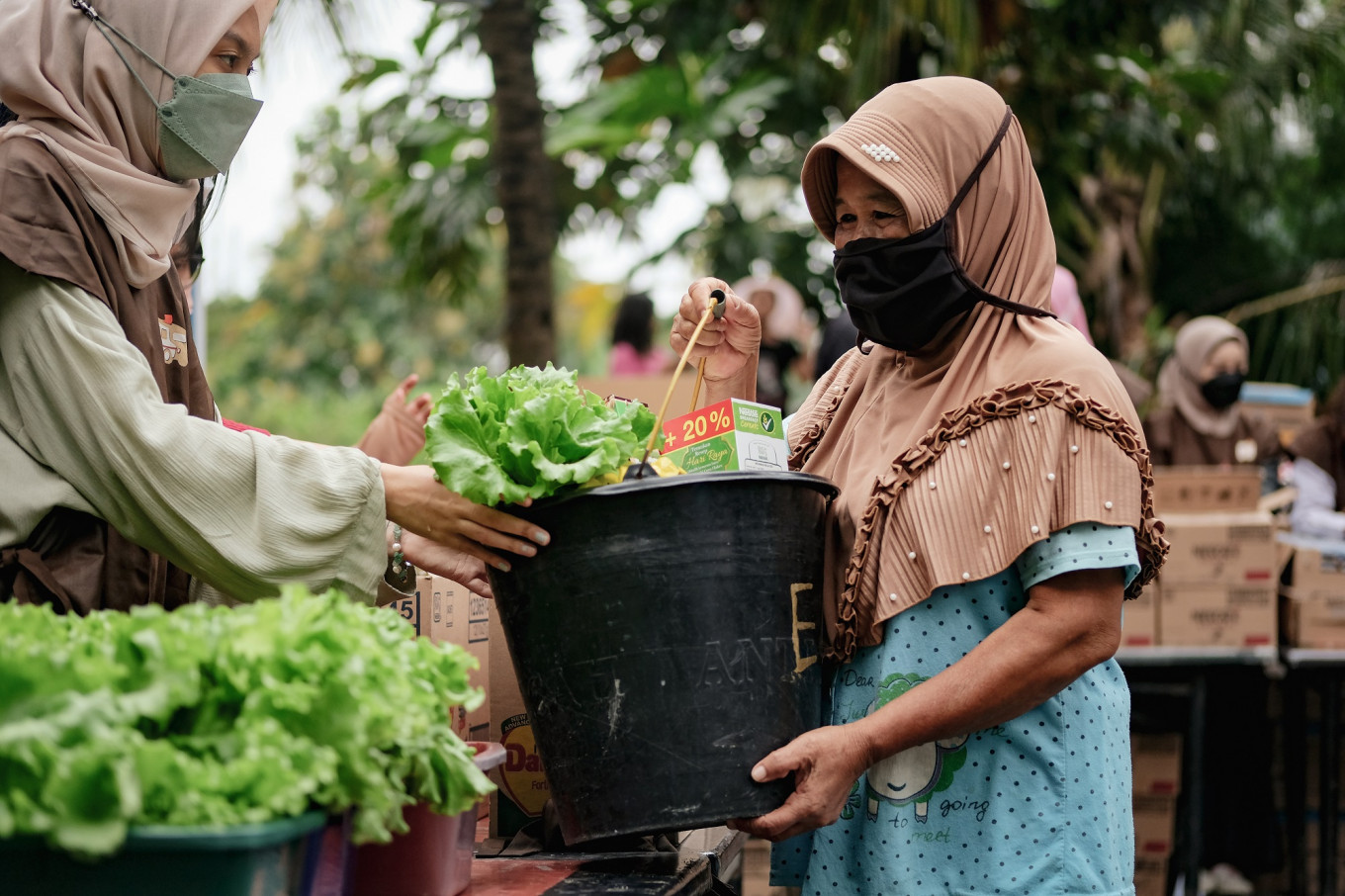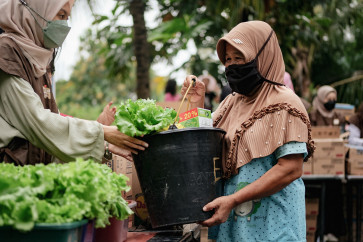Popular Reads
Top Results
Can't find what you're looking for?
View all search resultsPopular Reads
Top Results
Can't find what you're looking for?
View all search resultsIndonesian food banks try to tackle food waste and climate change issue
Change text size
Gift Premium Articles
to Anyone
T
ons of food ends up in landfills every year, adding to climate change and hunger issues. What should we do to mitigate these problems?
Eva Simanjuntak finds herself annoyed whenever her husband and children don’t finish the meal she’s prepared for them. The 43-year-old often bags the leftovers to give to the security officers in her residential complex in Simpang Selayang, Medan, North Sumatra.
"I feel sad when I see food being thrown away. If [the food I cook] doesn't get eaten, I’d rather give it to those who need it than waste it," she told The Jakarta Post.
Eva’s story and stance are common. Indonesians are aware of the food problem and in their own ways, try to be part of the solution.
One solution
One solution to the food waste issue is food banks that distribute food that was originally going to be disposed of to those who need it or have limited access to food. Food banks also collect and store food from various sectors and hand it to underprivileged people.
"Food banks are a solution [to food waste issue] that has been implemented in several developed countries. Recently, it was adopted in some developing countries, including Indonesia, which, as far as I know, only has six [food banks],” said Siti Suci “Laras” Larasati, founder and CEO of the Aksata Pangan Foundation, a food bank in North Sumatra.



















